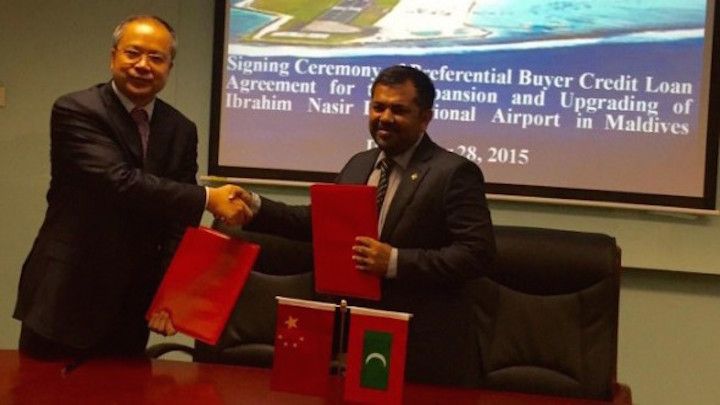Maldives secures US$373m loan for airport development
Tourism Minister Moosa Zameer signed the “preferential buyer credit loan agreement” with the Chinese EXIM Bank yesterday during his ongoing official visit to China. The funds will be used to build a new 3.2 kilometre runway, reclaim land, and develop a fuel farm and a cargo complex.

29 Dec 2015, 09:00
The government has secured a US$373 million concessionary loan from the Chinese EXIM Bank to upgrade and develop the Ibrahim Nasir International Airport.
Tourism Minister Moosa Zameer signed the “preferential buyer credit loan agreement” yesterday during his ongoing official visit to China. The funds will be used to build a new 3.2 kilometre runway, reclaim land, and develop a fuel farm and a cargo complex.
Zameer told reporters before departing for China earlier this week that the runway project has been awarded to the Chinese Beijing Urban Construction Group. Construction work is expected to begin next month.
Zameer said Airbus A380 jet liners will be able to land at INIA after the runway expansion. “The existing runway will be changed to a taxiway,” he said.
Become a member
Get full access to our archive and personalise your experience.
Already a member?
Discussion
No comments yet. Be the first to share your thoughts!
No comments yet. Be the first to join the conversation!
Join the Conversation
Sign in to share your thoughts under an alias and take part in the discussion. Independent journalism thrives on open, respectful debate — your voice matters.




